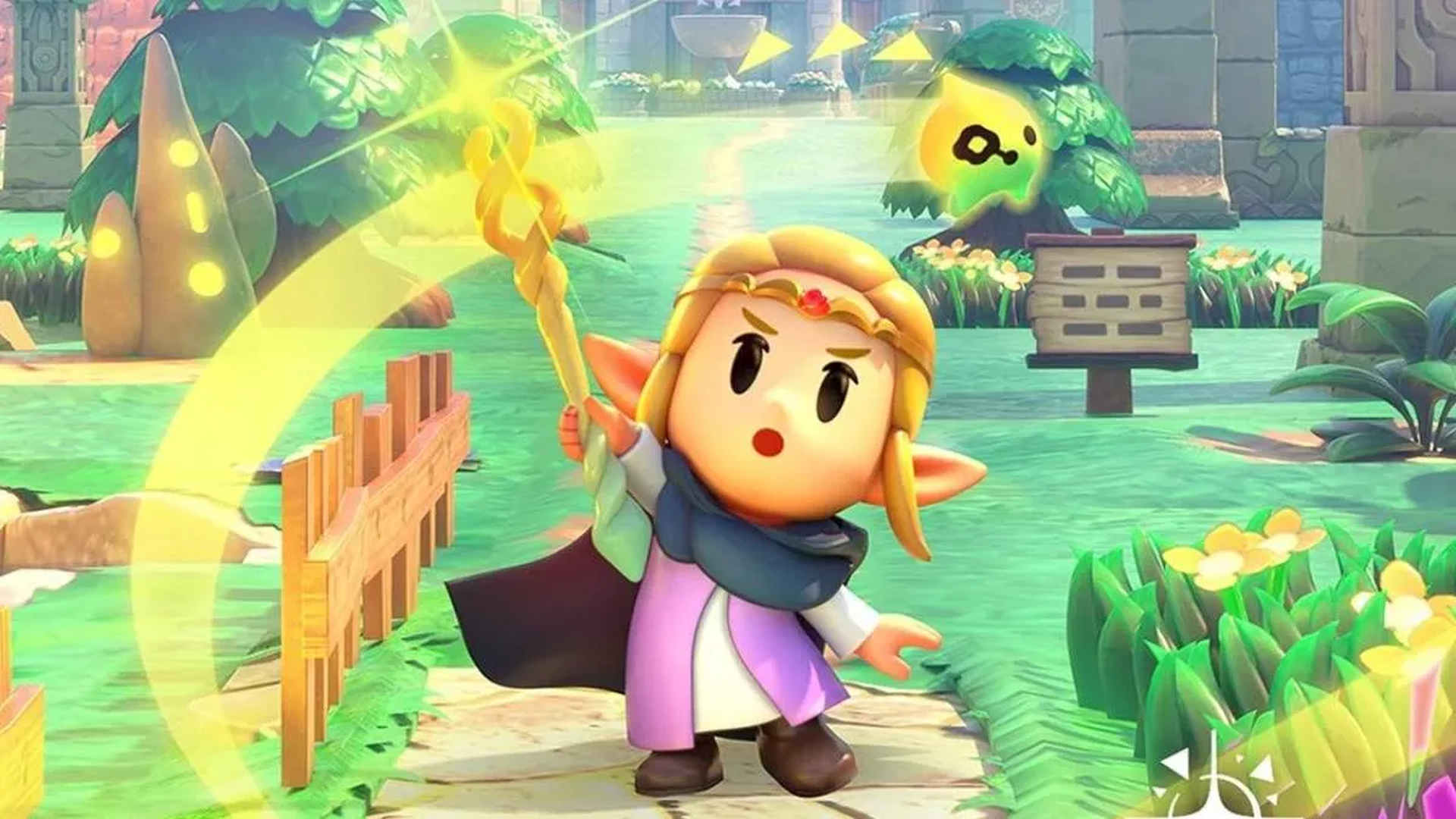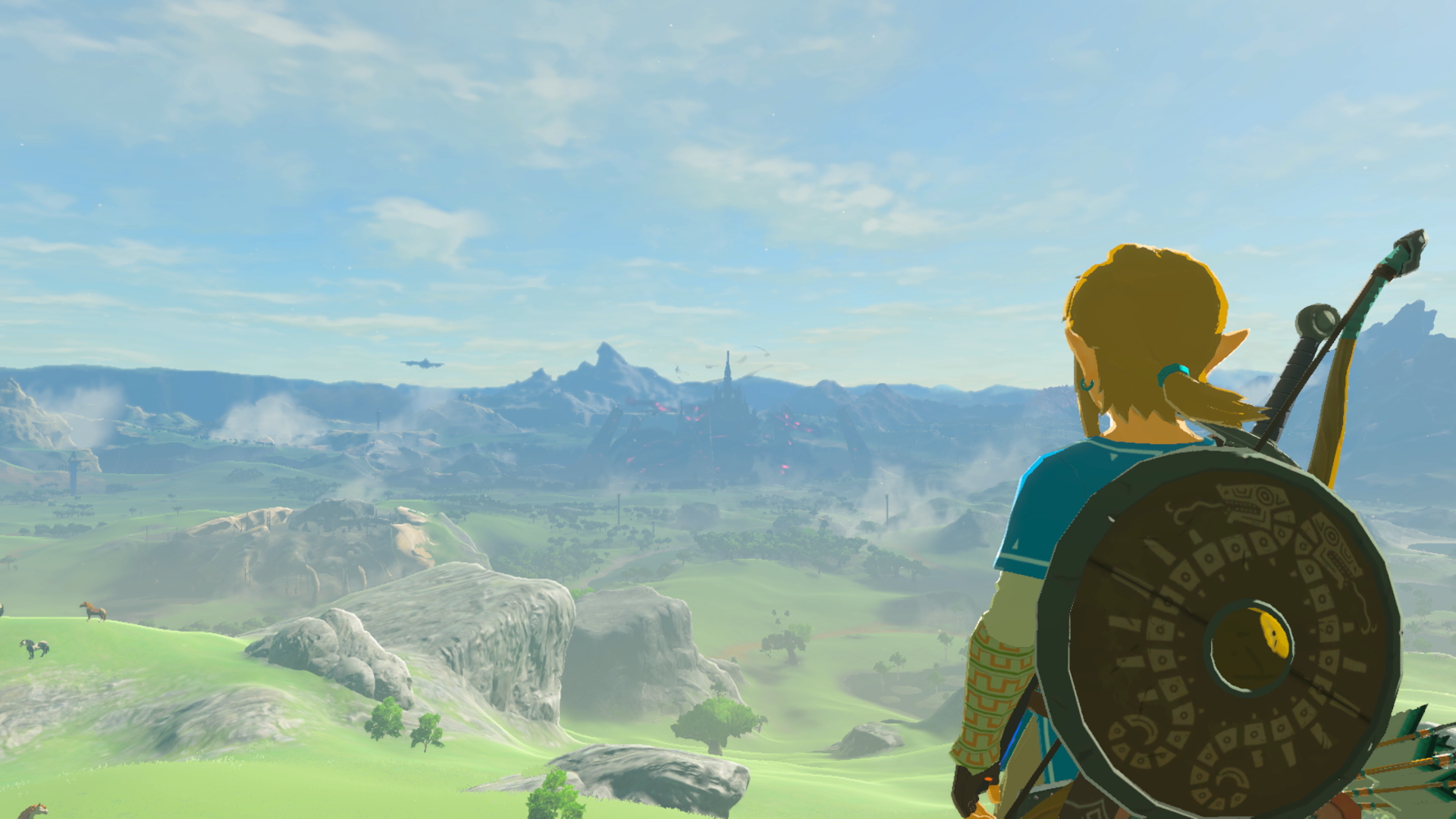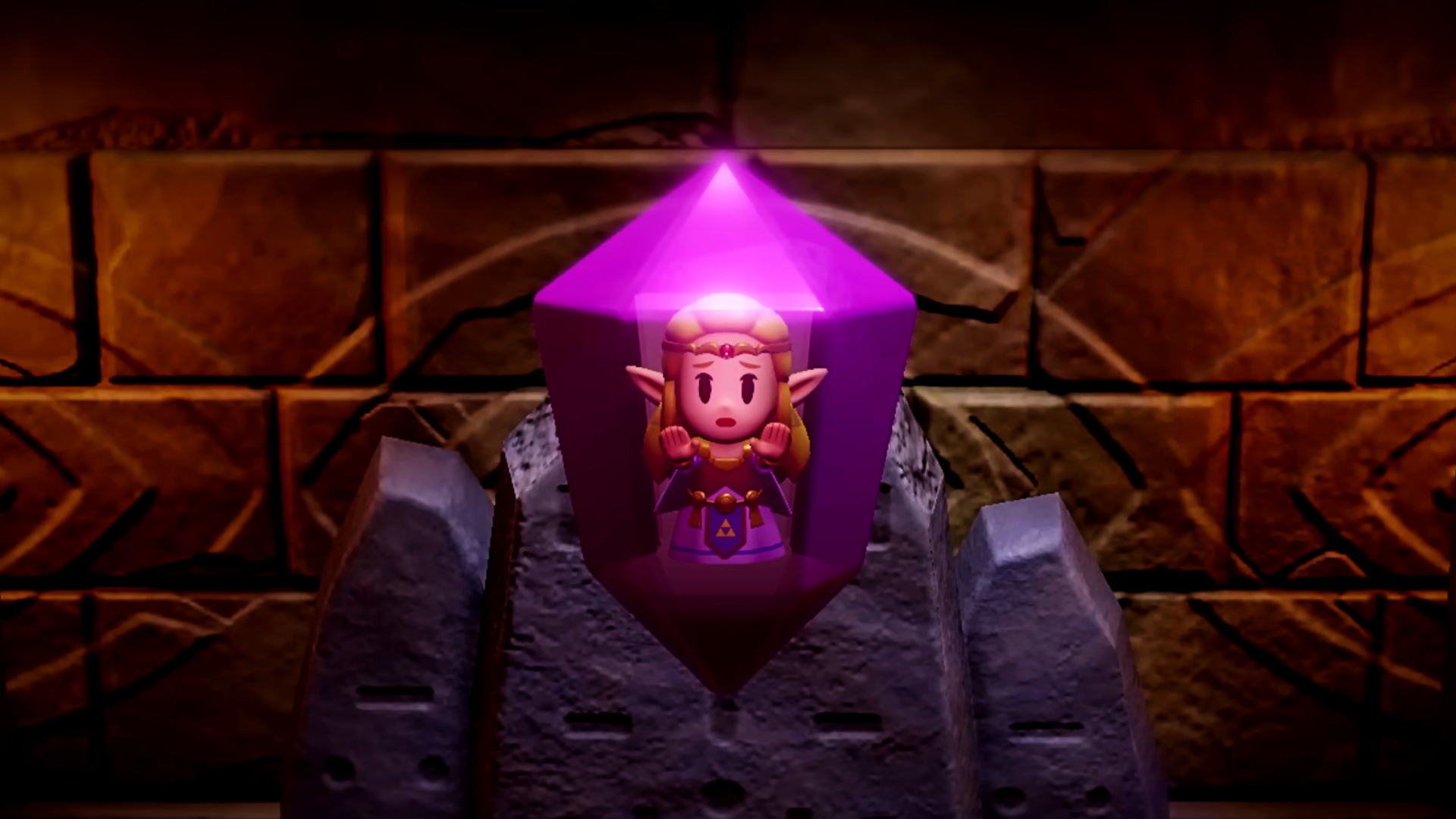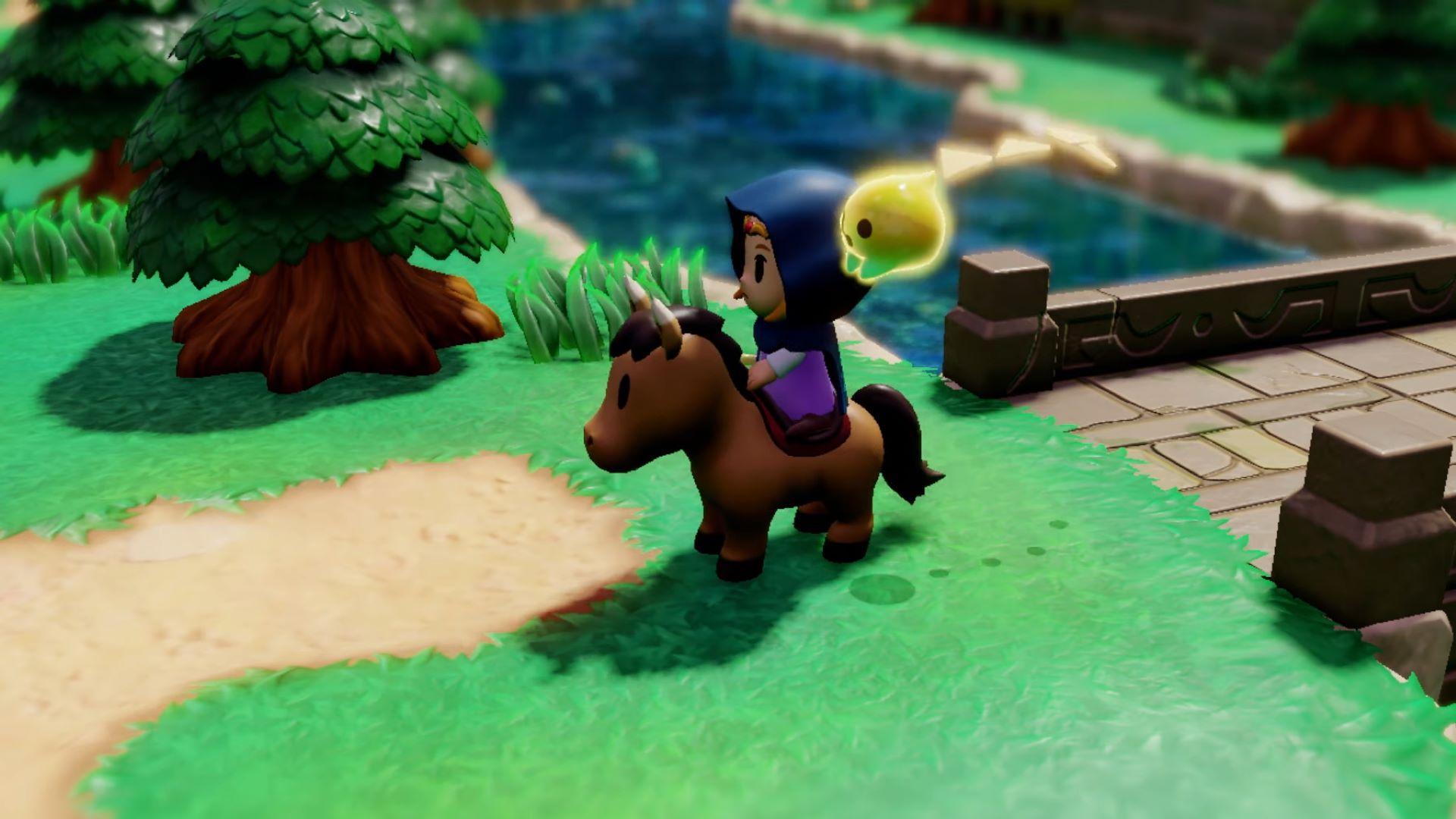The Legend of Zelda's future 3D titles should take inspiration from Echoes of Wisdom rather than Tears of the Kingdom
Opinion | Not all player restrictions are necessarily bad

For all the successful strides that Breath of the Wild and Tears of the Kingdom made in reinventing The Legend of Zelda’s tried and true formula, eschewing the franchise’s more linear progression in favor of a thrilling amount of player freedom, the widespread rejection of every franchise convention wasn’t necessarily all for the better.
Depending on who you ask, the recent duology is either a brilliant recontextualization of Zelda’s defined tropes, or a total gutting and replacement of what originally made the series appealing (with key iconography and terminologies being carried over). While I’ve personally been excited to see Nintendo follow its new vision for the series with total confidence, the recently released, smaller-scale The Legend of Zelda: Echoes of Wisdom has managed to strike a more idyllic and delicate balance between old and new, capturing the strengths of both the classic and modern Zelda titles in a way that I feel could be hugely beneficial for the series moving forward.
A link between past and present

So, what exactly is the distinction between these two different eras of The Legend of Zelda? Since the series' 1986 debut up until the 2010s, each mainline entry tasked players with conquering various themed dungeons to obtain new items, which would then subsequently allow them to explore more of the world, access more dungeons, and solve new puzzles specifically related to the properties of Link’s expanding arsenal. It wasn’t until 2013’s A Link Between Worlds that this formula started to give way to a major shake-up, allowing for a more free-form progression path due to the game’s item rental mechanic. 2017’s Breath of the Wild finally knocked the wall down, equipping players with every ability they’d need to explore all of Hyrule and reach the credits within the game’s opening tutorial area, and making every piece of content optional outside of facing Ganon, with Tears of the Kingdom following suit.

The Legend of Zelda: Echoes of Wisdom review – "A refreshing, magic-filled retool of the Link's Awakening engine"
Echoes of Wisdom sits neatly in the middle of the series' past and present. It still requires players complete specific dungeons to progress the story and unlock further dungeons, but it retains most of the player agency that Breath of the Wild and Tears of the Kingdom granted – at least once the first dungeon has been completed. Yes, some heavy-handed railroading makes for a bit of a sluggish opening stretch, but once the Echo and Bind abilities have been unlocked, and that first boss has been toppled, players are given the freedom to explore as much (or as little) of Hyrule as they want.
This means that players are still given the opportunity to roam, experiment, and chase as many upgrades as they want before making any real main story progress. Meanwhile, the game is still able to provide a more curated sense of escalation in its mechanics, overall challenge, and narrative that’s impossible to regulate when players are given free rein to the main story in any order.

"While no single direction can satisfy every fan, Echoes of Wisdom feels like a sensible middle-ground"
The dungeons themselves are full-fat, old-school offerings. Besides curated level design and challenges, there’s a substantial amount of them too, only with the single-solution puzzle-solving of older entries being replaced with the more experimental and expressive offerings seen in the recent games. It's an approach that revitalizes the classic dungeon template, making them feel modern without trimming away the intricate puzzle-box design.
Much of this is only achievable due to the game’s Echo mechanic, which allows players to create copies of various enemies and objects throughout the world that essentially act as surrogates for items such as bombs, the bow, and the hookshot. I feel, then, that the biggest challenge in making a game with a similar foundation and structure would be coming up with yet another new ability – or set of abilities – that are as all-encompassing as Echo’s. But, if Nintendo has demonstrated anything to us over the decades, it’s to never underestimate its game design ingenuity. Given the technical wizardry that Tears of the Kingdom’s developers managed to pull off with that game’s toolkit, I feel it’s a task well within its range of expertise.
Weekly digests, tales from the communities you love, and more
There’s a lot to praise about the freedom that the last couple of 3D entries have given players, and in many ways, it felt groundbreaking. But I also think there’s a limit to how many times the same approach can be repeated before it gets stale. After all, we’ve already seen this happen before, with games like Twilight Princess and Skyward Sword being criticized for sticking too closely to the prescribed structures of previous titles. While no single direction can satisfy every fan, Echoes of Wisdom feels like a sensible middle-ground, with its blend of formulas having the potential to be a major success if applied to a large-scale, big-budget entry.

In the years that he's been freelancing, Francis has written news, features, guides and reviews for a variety of different publications situated both within the UK and overseas. When he's not writing or working his day job, he's spending most of his time either at gigs, or trying (and failing) to keep up with the insurmountable wave of game releases, while occasionally dipping into the backlog to brush up on old classics.


